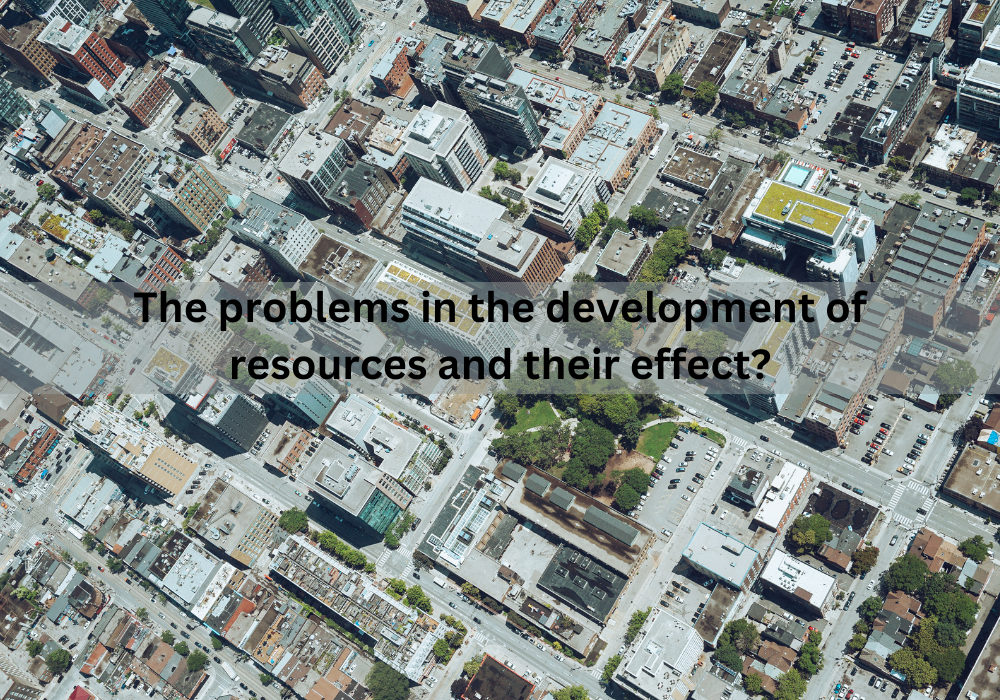Resources include natural resources like minerals, oil, gas, and lumber, among others, that can be explored for, extracted from, and used. However, several obstacles frequently hamper resource development and have a wide-ranging impact. Students struggle to understand such chapters in their classes, so they take online tuition classes for class 10 from the top online tutors. This article talks about the issues with resource development and how it affects the economy, society, and environment.
Problem 1: Environmental degradation
Resource development frequently entails destructive environmental practices, including mining, drilling, and deforestation. These actions have the potential to result in habitat damage for wildlife, soil erosion, and water and air pollution. The environment may suffer long-term consequences from the loss of biodiversity, which could result in the extinction of various plant and animal species.
Effect: Climate change
Climate change may result from the clearing of forests and other natural areas. By absorbing carbon dioxide from the atmosphere, forests play a crucial part in regulating the climate. The carbon that is held in forests is released into the atmosphere when they are destroyed, which contributes to global warming. Rising sea levels, more frequent and severe weather, and changes in agricultural production are all consequences of climate change.
Problem 2: Resource depletion
Non-renewable resources like minerals, oil, and gas may run out as a result of resource development. As these resources are mined and used, their reserves are decreased, which causes a shortage and higher costs.
Effect: Economic instability
Natural resource depletion may cause economic instability. As the price of these resources drops, countries that export a lot of natural resources may incur economic shocks. Government income losses, currency depreciation, and economic recession may result from this.
Problem 3: Social conflict
Social unrest can result from resource development, particularly in areas where resources are harvested. It is frequently necessary to uproot communities and buy their land in order to develop resources. Conflict and social unrest may result from disagreements between the impacted communities and resource developers.
Effect: Political instability
Political stability in a nation can be significantly impacted by social turmoil. Social conflict can, in some situations, spark civil unrest and political instability, which makes it challenging for governments to run their affairs efficiently.
Problem 4: Corruption
Resource development and corruption are frequently linked. Large sums of money spent on resource development can encourage bribery and corruption, especially in nations with lax governance systems.
Effect: Misuse of public funds
Because of corrupt officials’ theft of the proceeds of resource development, corruption can result in the misuse of public funds. As a result, there may be less money spent on vital social services like healthcare and education, which could result in social and economic inequality.
Problem 5: Lack of sustainable development
Resource development frequently prioritises immediate profits while giving little thought to sustainability over the long run. Resource depletion, environmental damage, and social unrest may result from this.
Effect: Unsustainable development
The economy, society, and ecology can all suffer long-term consequences from unsustainable resource exploitation. Resources running out and the environment getting worse can cause social unrest and economic instability, and climate change can have significant negative effects on people’s health and well-being.
Problem 6: Infrastructure development
Infrastructure development, including the building of roads, pipelines, and power plants, is frequently necessary for the development of resources. Communities may be uprooted as a result, and historical and cultural landmarks may be destroyed.
Effect: Loss of cultural heritage
Being a vital component of a community’s identity, cultural heritage might be lost as a result of infrastructure development. The loss of traditional knowledge may harm cultural diversity and social cohesiveness and practises brought on by the destruction of cultural places and the uprooting of communities.
Problem 7: Human rights violations
Human rights abuses are frequently linked to resource development, particularly in nations with lax governance systems. Resources can be exploited in ways that result in child labour, forced labour, and other human rights violations.
Effect: Impacts on vulnerable populations
Vulnerable people, such as women and children, may suffer greatly as a result of human rights breaches related to resource development. Forced labour and child labour can result in a lack of access to healthcare and education, hence sustaining inequality and poverty.
In conclusion, economic growth and development depend on the development of resources. Yet, it is frequently linked to a host of issues that have a significant impact on the economy, society, and environment. Some of the issues related to resource development include environmental degradation, resource depletion, social strife, corruption, and a lack of sustainable development. Promoting sustainable resource development that considers the long-term effects on the environment, society, and economy is crucial if we are to lessen these issues. Effective governance frameworks, accountability, and transparency in natural resource management are necessary for this.
Additionally, students can take online tuition from the best online tutoring services, which is available on the internet. Many students are taking an online one-on-one class from the tutors and are excelling in their exams. Most of the online tutors are PhD holders and are highly experienced.
